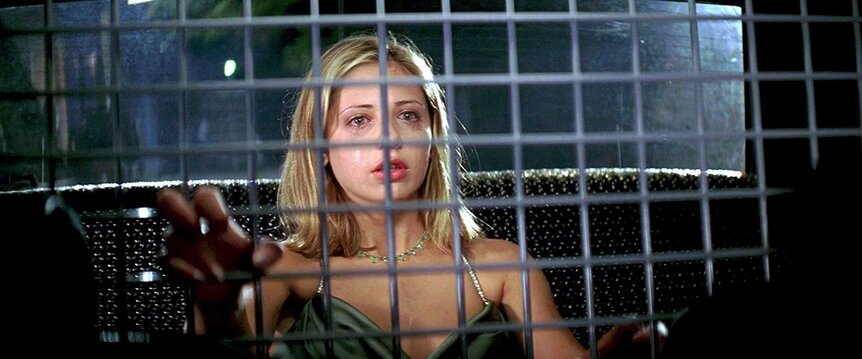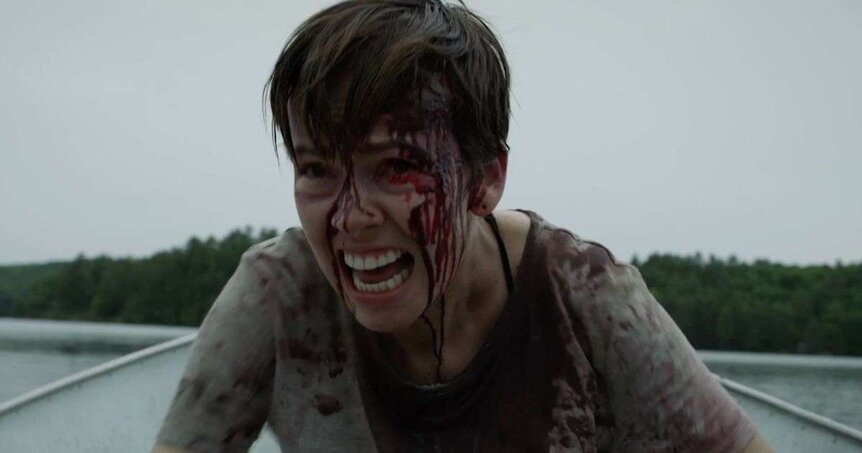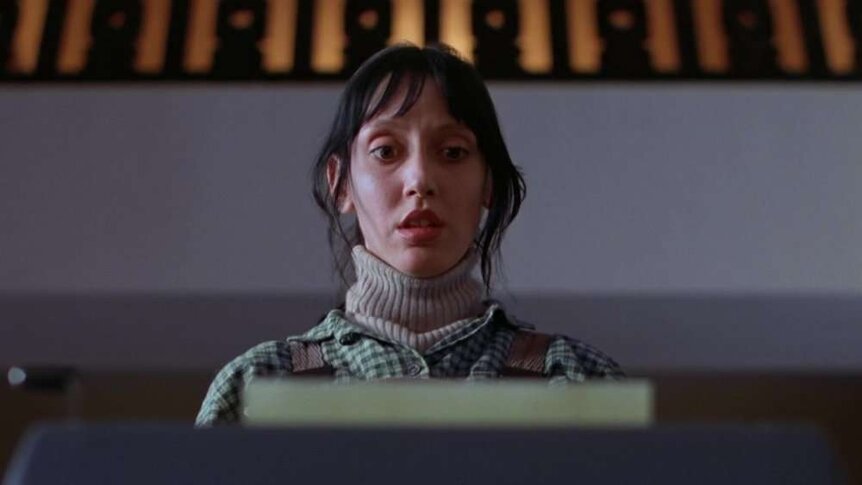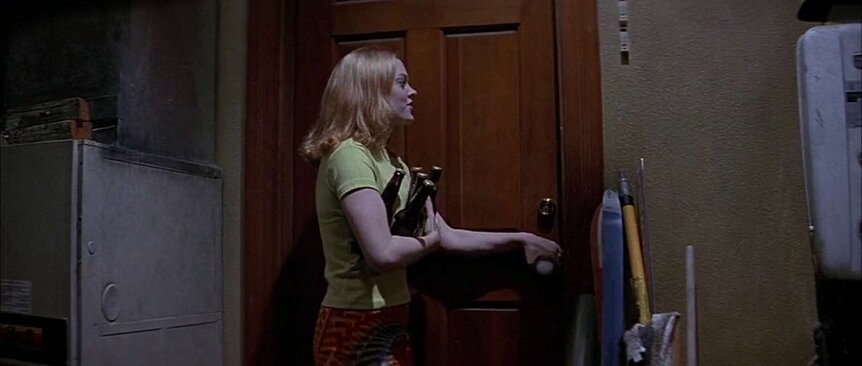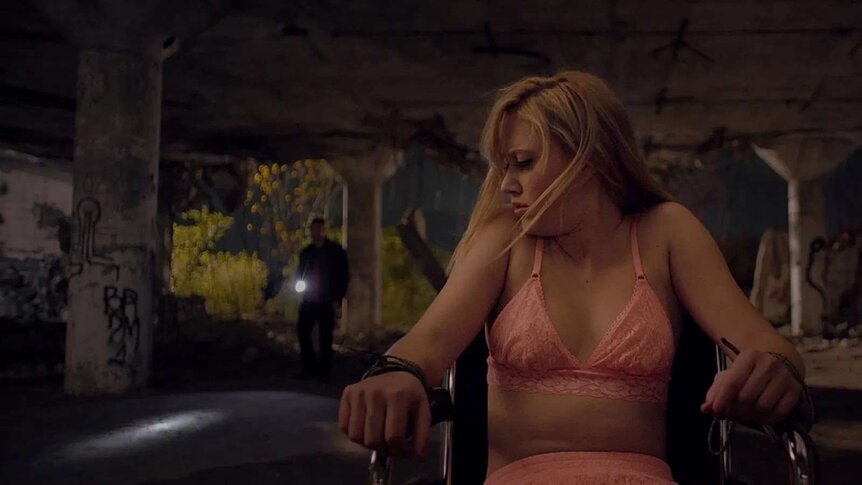Create a free profile to get unlimited access to exclusive videos, sweepstakes, and more!
In defense of bad decisions in horror
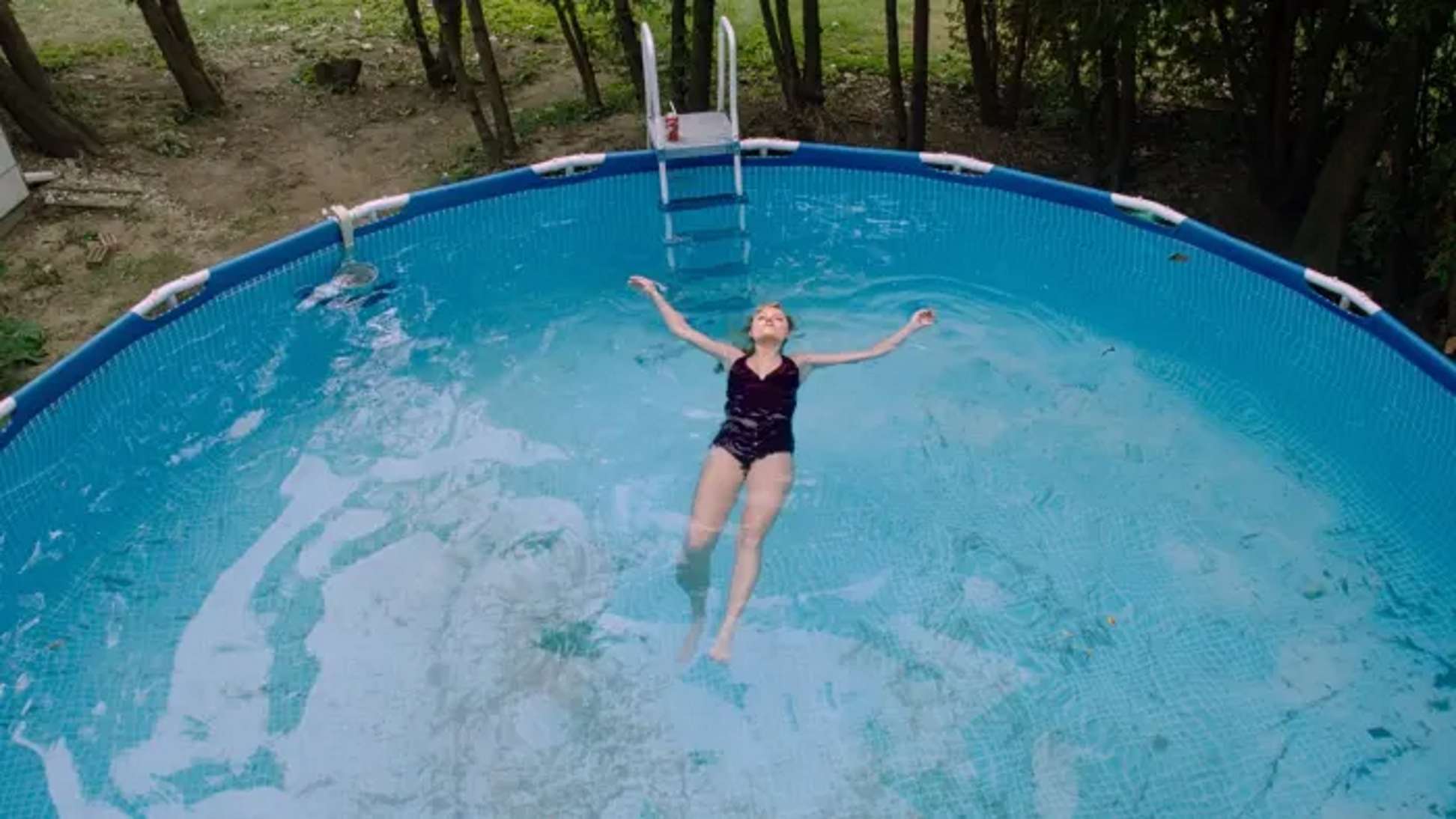
Even as big horror fans, we can admit that characters in horror films make some pretty bad decisions while on the run from movie monsters and murderous fiends. We all know the standard ones — while fleeing from a killer, our protagonist runs up the stairs instead of out the front door. Or our hero makes it to their car only to drop their keys at the worst possible moment. Or she trips and falls while running from an ax-wielding murderer. Or she leaves behind her only weapon after foolishly assuming the killer is dead. Truly, the list goes on.
Our point is, this is the kind of thing that we see a lot, and it's led to varying criticisms of the filmmakers and screenwriters, even down to the genre itself. Here's the thing, though — we constantly make these decisions when we're not under the stress of being chased down by a serial killer who's already killed half off our friend group. A lot of people deride these characters for making bad choices, but let's face it, we make bad choices every single day when nobody's chasing us with an ax.
Helen Shivers
Helen Shivers (Sarah Michelle Gellar) ran a race against the killer in I Know What You Did Last Summer, making it all the way to within a few feet of safety only to suddenly stop and turn to see if he was still behind her. The hesitation costs her everything, and Helen is no more. This is one of the famously bad decisions made by a protagonist in a horror film, but frankly, it's not the worst choice Helen makes. For instance, dating an aggressive teen jock named Barry was probably a worse one, but we're not here to judge.
Helen is a compelling character especially in horror, a genre that traditionally fails to give emotional backing to its doomed teenagers. On the surface, she's shallow, obsessed with beauty pageants and trips to New York. Yet there's something haunted in Helen from the very beginning, and it gives her character a lot more weight than what we see at face value. There have been full essays written on her death scene alone, and she has remained surprisingly influential.
Helen's death scene is long, so long in fact that we the audience begin to feel that she will surely survive, only to realize sadly that she won't. While the impetus may be to blame Helen for her last flawed moment on this earth, the fact is that she made a lot of right decisions throughout the chase. Checking one last time to make sure she was safe isn't exactly the foolish error it's made out to be by critics. Helen was a pageant star and a young woman reeling from emotional trauma, guilt-ridden and quietly horrified at the prospect of settling on an existence set up for her by society's expectations. She spends the entire film weighing heavy life-or-death scenarios that no one else sees or understands, so it's not that surprising that she looked one last time for proof.
Jules
What Keeps You Alive is a film about profound betrayal, and the fear that those we love are not who we think they are. People fall in love with manipulators all the time, and this is something that occasionally proves to have catastrophic, even life-ending consequences. The horror of What Keeps You Alive is that there's nothing unbelievable or supernatural about it. This is the kind of thing that could happen to anybody, and it's very likely that if it happened to you, no one would ever find out.
After Jules survives her wife Jackie's brutal attack and witnesses Jackie manipulate and then kill others simply to keep her secret, she finally outsmarts Jackie and escapes with her life. She drives quickly away, then, surprisingly, stops. She weeps, alone on the side of the road, and chooses to turn around and go back. This is considered to be a bad, even paradoxical decision by a lot of horror fans, but Jules just had her wife of a whole year lie to her, attempt to murder her, and kill others in front of her. She discovered that Jackie had done this to several other women, and ensured that regardless of whether she lived or died, Jackie would never be able to do it to anyone else ever again. Going back isn't the "bad decision" it's made out to be — we're talking about a woman who has lost everything and nearly died, and chooses to confront her attacker on her own terms. That's brave!
Wendy Torrance
Another character that gets heavily criticized for her choices is Wendy in The Shining, but this is just a woman who was trying beyond all reason to be a good wife and mother. She gave Jack the benefit of the doubt, but he was deliberately cruel to her when she tried to test boundaries. That's not really on her, and her apparent docility is a result of her trying to navigate long-term tension in their relationship. She hesitates to hit him even as he threatens her, but that's just a woman holding out on her last hope that this is a man who would never truly hurt her or their child. In the book, there was some background information about Jack's drinking problems and his prior abuse of their son that added some context to her commitment to her desire to make things work, but even on the screen, Wendy is almost entirely reactionary. She doesn't make bad choices so much as the bad choices drop themselves right upon her head and leave her to navigate them.
Wendy puts her husband in a place he should not be able to get out of and falls asleep without making a back-up plan, but she did just hit her husband in the face with a bat and dragged him all the way to the kitchen after realizing that he had become completely unhinged. That's exhausting stuff! The fact that she thought it was safe to take a short break before trying to figure out how to deal with this snowed-in nightmare is pretty understandable.
Tatum Riley
Tatum Riley is one of the deaths on this list that still stings. Like Helen, Tatum is a genuinely great character, and the Scream sequels, wonderful though they were, would have benefited from keeping her around. She's a good friend, she's smart, she has quality one-liners, and she doesn't lose her cool even when she probably should. This is a fantastic horror protagonist, and her death mostly just serves to up the stakes on a situation where the stakes were already pretty dang high.
When Ghostface comes after Tatum in the first Scream, she mocks him, assuming that he's just a friend messing with her. When he makes it clear that this is not the case, she chucks beer bottles at him and screams for help, which is good. When she runs out of beer bottles, she makes her fatal gambit to try and escape out a small pet door. She gets stuck and dies, and it sucks. It sucks the most.
Now, Tatum is often criticized for this choice, but let's face it, she was running out of options. Our question is this: Who puts a dog door on the garage? There has to be about a dozen better places for it. This is just a casual observation. Anyway, RIP Tatum.
It Follows
Critics of It Follows generally point out any number of terrible choices made by the teen protagonists of the film as their reason for disliking it, but we're talking about teenagers here. How many bad choices did we make as teens? All of them. Every choice. Your teen years are nothing but the bad choices made by an underdeveloped personality. If that isn't true of you, then congratulations. We're so happy for you.
In this allegory for sexually transmitted infections, our hero Jay has the misfortune of choosing a boyfriend who, upon sleeping with him, leaves her with a terrible curse. A demonic, shape-shifting entity that no one else can see will now follow her until it can kill her. The only way to stop this is to pass it on to someone else. Jay does what any of us would do: freaks out, calls her friends for help, makes a ton of mistakes, and some people die. Of course, there are things we might not have done, like jumping into a closed swimming pool to try and electrocute the entity, but she's in a place where there is truly no right choice to make.
Horror films might have a lot of implausible moments in them, but so does our regular everyday life, and more often than not we're lucky when we handle it as well as any of these characters did. Sure, there's something to be said for the argument of misogyny in horror being a primary motivator for women making consistently foolish decisions, but to blame the characters themselves is folly. They were just doing their best, OK? We're all ... just doing our best.
